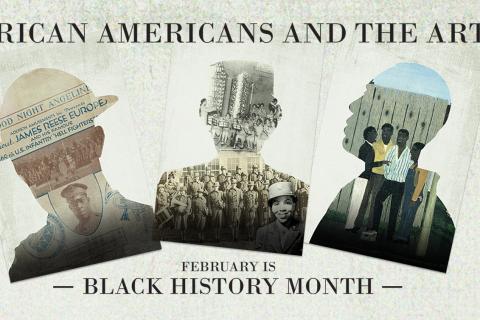
The history of black history month | va western new york health care | veterans affairs
- Select a language for the TTS:
- UK English Female
- UK English Male
- US English Female
- US English Male
- Australian Female
- Australian Male
- Language selected: (auto detect) - EN
Play all audios:

Each February, VA joins the entire country in celebrating Black History Month. During this month, we celebrate all Black Americans, Black VA colleagues, and the Black Veterans who have
served and sacrificed for this nation in every conflict since the American revolution. This year’s Black History Month theme is African Americans and the Arts. The founder of this
celebration, Carter G. Woodson, believed that truth could not be denied and that reason would prevail over prejudice. His hopes to raise awareness of Black Americans’ contributions to
America were realized when he and the organization he founded, the Association for the Study of Negro Life and History, conceived and announced Negro History Week in 1925. The event was
first celebrated during a week in February 1926 that encompassed the birthdays of both Abraham Lincoln and Frederick Douglass. The response was overwhelming: Black history clubs sprang up;
teachers demanded materials to instruct their pupils; and many Americans of all races stepped forward to endorse the effort. By the time of Woodson’s death in 1950, Negro History Week had
become a central part of Black American life, and substantial progress had been made in bringing more Americans to appreciate the celebration. At mid-century, mayors of cities nationwide
issued proclamations noting Negro History Week. The Black Awakening of the 1960s dramatically expanded the consciousness of Americans about the importance of Black history. The celebration
was expanded to a month in 1976, the nation’s bicentennial. President Gerald R. Ford urged Americans to “seize the opportunity to honor the too-often neglected accomplishments of Black
Americans in every area of endeavor throughout our history.” That year, 50 years after the first celebration, the association held the first Negro History Week. By that time, the entire
nation had come to recognize the importance of Black history in the American story. Since then, every American president has issued Black History Month proclamations. And the association—now
the Association for the Study of African American Life and History—continues to promote the study of Black history all year. (Adapted from an essay by Daryl Michael Scott, Howard
University, for the Association for the Study of African American Life and History, available at the Library of Congress.)
